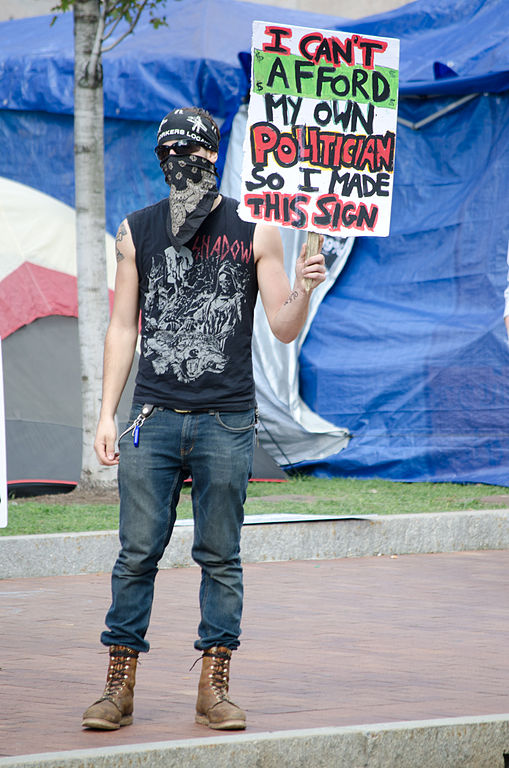SENATE DOCKET, NO. 2050 FILED ON: 1/20/2023
SENATE . . . . . . . . . . . . . . No. 983
| By Ms. Friedman, a petition (accompanied by bill, Senate, No. 983) of Cindy F. Friedman, Lydia Edwards, Robyn K. Kennedy, Joanne M. Comerford and other members of the General Court for legislation to strengthen justice and support for sex trade survivors. The Judiciary. |
[SIMILAR MATTER FILED IN PREVIOUS SESSION
SEE SENATE, NO. 940 OF 2021-2022.]
The Commonwealth of Massachusetts
_______________
In the One Hundred and Ninety-Third General Court
(2023-2024)
_______________
An Act to strengthen justice and support for sex trade survivors.
Be it enacted by the Senate and House of Representatives in General Court assembled, and by the authority of the same, as follows:
SECTION 1. Section 7 of chapter 4 of the General Laws, as appearing in the 2020 Official Edition, is hereby amended by inserting after the sixty-first definition the following definition:-
Sixty-second, “prostituted person” shall mean any person who has been subjected to prostitution because such person: (i) is the victim of the crime of sexual servitude pursuant to section 50 of chapter 265 or is the victim of the crime of sex trafficking as defined in 22 U.S.C. 7105; (ii) engages, agrees to engage or offers to engage in sexual conduct with another person in return for a fee, in violation of subsection (a) of section 53A of chapter 272 as appearing in the 2020 Official Edition, or in exchange for food, shelter, clothing, education or care; (iii) is a victim of the crime, whether or not prosecuted, of inducing a minor into prostitution under by section 4A of chapter 272; or (iv) engages in common night walking or common streetwalking under section 53 of chapter 272 as appearing in the 2020 Official Edition.
SECTION 2. Section 55 of chapter 265 of the General Laws, as appearing in the 2020 Official Edition, is hereby amended by striking out, in line 4, the words “section 50 or 51” and inserting in place thereof the following words:- “section 50 or 51 of this chapter or section 8 or 53A of chapter 272”.
SECTION 3. Said section 55 of said chapter 265 is hereby further amended by adding the following paragraph:-
All monies used or intended to be used to facilitate any violation of section 8 or 53A of chapter 272 that are not provided as restitution to victims shall be transmitted monthly by the courts to the state treasurer who shall then allocate the funds to the Massachusetts Office for Victim Assistance who shall, in turn, allocate the funds to the Victims of Human Trafficking Trust Fund.
SECTION 4. Section 56 of said chapter 265, as so appearing, is hereby amended by striking out, in lines 6, 8 to 9, 15, 19, 33 to 34, 43, 50 to 51, and 66, the words “section 50 or 51” and inserting in place thereof, in each instance, the following words:- “section 50 or 51 of this chapter or section 8 or 53A of chapter 272”.
SECTION 5. Section 4A of chapter 272 of the General Laws, as appearing in the 2020 Official Edition, is hereby amended by striking out, in line 1, the word “prostitute” and inserting in place thereof the following words:- “prostituted person”.
SECTION 6. Section 7 of said chapter 272, as so appearing, is hereby amended by striking out, in line 1, the word “prostitute” and inserting in place thereof the following words:- “prostituted person”.
SECTION 7. Said chapter 272, as so appearing, is hereby further amended by striking out section 8 and inserting in place thereof the following section:-
Section 8. Whoever solicits or receives compensation for soliciting for a prostituted person, except a prostituted person who is solicited, shall be punished by imprisonment in a house of correction for not more than 2 and one-half years, or by a fine of not less than $1,000 and not more than $5,000 or by both such imprisonment and fine.
SECTION 8. Section 53 of said chapter 272, as so appearing, is hereby amended by striking out subsection (a) and inserting in place thereof the following subsection:-
(a) Persons who with offensive and disorderly acts or language accost or annoy another person, lewd, wanton and lascivious persons in speech or behavior, keepers of noisy and disorderly houses, and persons guilty of indecent exposure, shall be punished by imprisonment in a jail or house of correction for not more than 6 months, or by a fine of not more than $200, or by both such fine and imprisonment.
SECTION 9. Section 53A of said chapter 272, as so appearing is hereby amended by striking out subsection (a).
SECTION 10. Section 107 of said chapter 272, as so appearing, is hereby amended by striking out, in line 2, the words “subsection (b) and subsection (c) of”.
SECTION 11. Section 100K of chapter 276 of the General Laws, as appearing in the 2020 Official Edition, is hereby amended by striking out subsection (c) and inserting in place thereof the following subsections:-
(c) The court shall order an expungement pursuant to this section of a record created as a result of a criminal court appearance, juvenile court appearance or dispositions for charges of common street walking, under subsection (a) of section 53 of chapter 272 as appearing in the 2020 Official Edition, and for charges of sexual conduct with another person in return for a fee under subsection (a) of section 53A of chapter 272 as appearing in the 2020 Official Edition.
(d) The court shall forward an order for expungement pursuant to this section forthwith to the clerk of the court where the record was created, to the commissioner and to the commissioner of criminal justice information services appointed pursuant to section 167A of chapter 6.
SECTION 12. Notwithstanding any general or special law to the contrary, there shall be a special commission to review and develop a set of recommendations to prevent, identify and respond to all forms of prostitution in the commonwealth. The special commission shall consist of 17 members: (i) the secretary of the executive office of health and human services or designee, who shall serve as a co-chair; (ii) the director of the Massachusetts office for victim assistance or designee, who shall serve as a co-chair; (iii) a representative of the office of the attorney general; (iv) a representative of the department of public health; (v) a representative of the department of housing and community development; (vi) a representative of the department of children and families; (vii) a representative of the department of mental health; (viii) a representative of the executive office of labor and workforce development; (ix) a representative of My Life My Choice; (x) a representative of Living in Freedom Together; (xi) a representative of the EVA Center; (xii) a representative from an organization focused on the needs of the LBGTQ+ community; (xiii) a representative from an organization dedicated to providing treatment to those with substance use disorder; (xiv) a representative of Boston Medical Center; (xv) a representative of the Massachusetts office of refugees and immigrants; (xvi) a representative from the committee for public counsel services; and (xvii) a victim witness advocate appointed by the Massachusetts office for victim assistance.
The special commission shall publish a report, which shall include, but not be limited to: (i) a review of existing government and non-government services related to the prevention, identification and support of prostituted persons and the effectiveness of such services; (ii) recommendations to increase and provide assistance to prostituted persons, including, but not limited to, housing and re-location services, physical and behavioral health care, education and job training, legal assistance, and victim compensation; (iii) strategies and best practices for launching a statewide prevention and awareness campaign that uses evidence-based educational programs and techniques to help deter youth from the commercial sex trade; and (iv) recommendations to increase existing organizations’ capacity to deliver survivor-of-prostitution-led exit programming that provides continuity of support services for survivors.
The special commission shall convene not later than 90 days after the effective date of this act and shall submit its findings and recommendations to the governor, the secretary of health and human services, the clerks of the senate and the house of representatives, the chairs of the joint committee on children, families and persons with disabilities and the chairs of the senate and house committees on ways and means not later than 18 months after the effective date of this act.
 How Buckley v. Valeo and Citizens United Have Undermined American Democracy
How Buckley v. Valeo and Citizens United Have Undermined American Democracy














